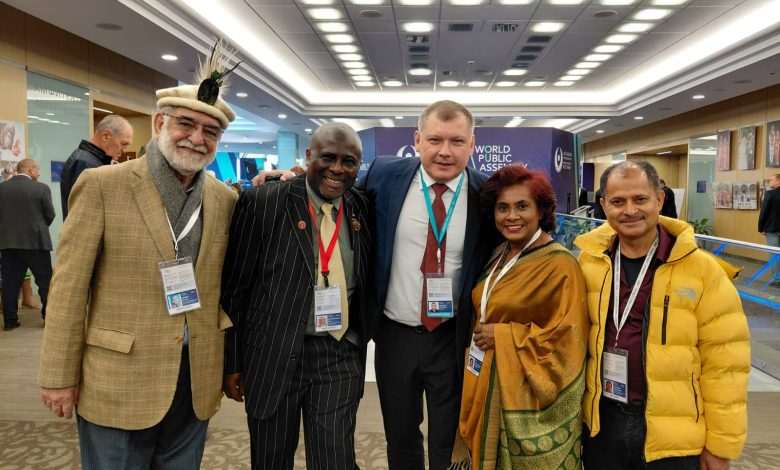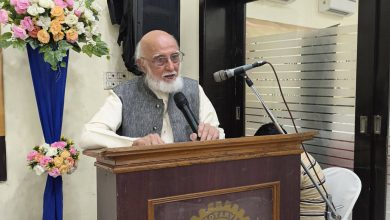
 Just as we were gearing up for the World Public Assembly and WOW Congress in Moscow come September 20-22, 2025, Ms. Margarita Al, the President of the World organization of Writers sent out a call for writers to provide or send a quote about “Happiness”. As a writer with many, many books and two of aphorisms, adages, proverbs, and insightful sayings, I thought I could just pick one from the already published aphorisms and send but something struck me. “You are working on the 3rd volume; why don’t you look in to the volume in progress to see if you have something on happiness worth sharing. As I perused and stumbled on the following quote, “If people only knew what happiness is, Man will live forever; it is the elixir of everlasting life and confirmed by Keatsian negative capabilities.”, my heart sank. I thought to myself, while I would like my readers to unpack the quote for themselves, it is still worthwhile for me to share with the world the underpinnings of the quote as I conceived it. I thought to myself that the quote is simple enough for each and every reader to make sense of it; so why worry? But the urge to craft an explanation was akin to Oscar Wilde’s temptation to which none can resist.
Just as we were gearing up for the World Public Assembly and WOW Congress in Moscow come September 20-22, 2025, Ms. Margarita Al, the President of the World organization of Writers sent out a call for writers to provide or send a quote about “Happiness”. As a writer with many, many books and two of aphorisms, adages, proverbs, and insightful sayings, I thought I could just pick one from the already published aphorisms and send but something struck me. “You are working on the 3rd volume; why don’t you look in to the volume in progress to see if you have something on happiness worth sharing. As I perused and stumbled on the following quote, “If people only knew what happiness is, Man will live forever; it is the elixir of everlasting life and confirmed by Keatsian negative capabilities.”, my heart sank. I thought to myself, while I would like my readers to unpack the quote for themselves, it is still worthwhile for me to share with the world the underpinnings of the quote as I conceived it. I thought to myself that the quote is simple enough for each and every reader to make sense of it; so why worry? But the urge to craft an explanation was akin to Oscar Wilde’s temptation to which none can resist.
As I started crafting this elucidation, it donned on me to explore the various themes that the quote covered. I shared the same with both Margarita Al—WOW President—and Eldar Akhadov, WOW chief coordinator. I received in response from Eldar, the following: “Very interesting reasoning. Would you like to speak about it at one of our round tables? The topic is covered in depth. Regarding the awareness of oneself in the existing world, I proceed from the paradigm of denying the Big Bang and perceive time as a conditional substance invented by people for the convenience of calculations.” Even though I embraced the idea of sharing this at one of our roundtables, I did not have the opportunity to share this thought as suggested by Eldar. In publishing it here, I think many more people amongst us as well as from around the world will need to read and, if need be we can then organize a virtual roundtable to further the discussion on this theme which is near and dear the overarching theme that this year’s World Public Assembly explored, viz. “A New World of Conscious Unity.” That is a world in which we are happy seeing others happy because we live on the same planet.

Explanation:
The pursuit of happiness is a human longing that has long been a central theme in philosophy, literature, and human existence and endeavor. The abovementioned quote presents a profound reflection on the nature of happiness, its transformative power, and its philosophical implications. Happiness, in this case, is not merely a fleeting emotion but a metaphysical force capable of transcending mortality. The reference to “Keatsian negative capabilities” adds a layer of poetic and philosophical depth, invoking the Romantic poet John Keats’s idea of embracing uncertainty and mystery without the need for concrete answers.
Furthermore, it is an invitation to a profound meditation on the nature of happiness; suggesting that happiness, if properly understood, is not merely a psychological state but a metaphysical force—one that transcends mortality and aligns with the poetic and philosophical notion of “negative capability” as articulated by John Keats. It is an exploration of happiness through multiple lenses—literary, philosophical, psychological, and theological—to uncover the deeper implications of happiness as a timeless, transformative experience. The concept of happiness as an existential elixir, the metaphor of immortality, and the role of negative capability in understanding and attaining true happiness. Through this exploration, we can understand how happiness, when truly grasped, can elevate human consciousness and offer a form of spiritual perpetuity.

Happiness as Transcendence
The idea that happiness could grant immortality is not new. From the Epic of Gilgamesh to the teachings of the Buddha, humanity has long sought a state of being that transcends suffering and death. The quote implies that happiness is not just desirable—it is essential, and perhaps even salvific. By invoking Keats’s concept of negative capability, it also suggests that happiness is found not in certainty or control, but in the embrace of mystery, ambiguity, and the fullness of human experience.
The metaphor of happiness as the “elixir of everlasting life” evokes ancient myths and alchemical traditions where elixirs were sought to grant immortality. In this context, happiness is not a physical substance but a state of being that transcends the limitations of time and mortality. If humanity truly understood happiness—not as pleasure or material satisfaction, but as a deep, abiding sense of fulfillment and harmony—then life itself would be transformed.
Happiness has been the concern of the African in his orally handed down folktales long before philosophers such as Aristotle and Epicurus started debating the nature of happiness. Aristotle’s concept of eudaimonia—a flourishing life achieved through virtue and reason—aligns with the idea that happiness is a holistic and enduring state. Epicurus, on the other hand, emphasized the absence of pain and the cultivation of simple pleasures. Both perspectives suggest that happiness is attainable through introspection, ethical living, and self-awareness.

African thinkers and writers such as Achebe and Soyinka have also given their voices to happiness. Soyinka’s reflections on happiness points to inner freedom and moral courage as essential to human dignity and happiness. When he writes, “The man dies in all who keep silent in the face of tyranny”, he is simply suggesting that one cannot take away integrity and resistance to oppression and hope to achieve happiness. Achebe views happiness from the lenses of relationship and community; pitting characters whose joys are brought about by social harmony, tradition, and identity and only disrupted by colonial and extraneous forces.
Western thinkers like Immanuel Kant, on the other hand, argue that happiness is too subjective to serve as a moral compass. He emphasized duty and the categorical imperative over emotional satisfaction. Yet even Kant acknowledged that happiness is a natural human desire, and that moral living contributes to inner peace—a form of happiness grounded in ethical coherence.
In modern psychology, happiness is often linked to well-being, purpose, and connection. Positive psychology, pioneered by Martin Seligman, identifies elements such as engagement, relationships, meaning, and accomplishment as key to lasting happiness. These dimensions support the idea that happiness is not ephemeral but foundational to human thriving. When individuals align their lives with these principles, they experience a form of existential continuity—a life so rich in meaning that it feels timeless.
Furthermore, in psychology, happiness has evolved from a vague concept to a measurable construct. Martin Seligman’s theory of PERMA—Positive Emotion, Engagement, Relationships, Meaning, and Accomplishment—offers a framework for understanding well-being. Seligman’s work in positive psychology supports the idea that happiness is not merely pleasure, but a multidimensional experience that includes purpose and connection. Similarly, Abraham Maslow’s hierarchy of needs culminates in self-actualization, a state of fulfillment that resembles the “elixir” described in the quote.
From a neuroscientific perspective, happiness involves complex interactions between neurotransmitters like dopamine and serotonin. Yet even here, the mystery remains: why do some people find joy in adversity, while others struggle despite abundance? This paradox points toward Keats’s insight—happiness may lie not in external conditions but in the capacity to dwell in uncertainty and still find meaning. This idea resonates with Quaker ideals of true happiness which “… is not found in outward circumstances, but in inward stillness and communion with the Divine.” In short for Quakers, happiness arises from freedom from material excesses, which allows space deeper relationships and embrace of the spiritual.
Keatsian Negative Capability – Embracing Mystery and Uncertainty
The allusion to “Keatsian negative capabilities” introduces a poetic and philosophical lens through which to view happiness. John Keats coined the term “negative capability” to describe the ability to remain in “uncertainties, mysteries, doubts, without any irritable reaching after fact and reason.” This concept is essential to understanding the deeper nature of happiness.
Negative capability encourages openness to experience, acceptance of ambiguity, and a suspension of judgment. In the context of happiness, it suggests that true joy arises not from control or certainty, but from surrender and presence. The happiest individuals are often those who can dwell in the moment, appreciate beauty without needing to dissect it, and find peace in the unknown.
This idea is also in alignment with Eastern philosophies such as Taoism and Zen Buddhism, which emphasize flow, detachment, and harmony with the universe. In Taoism, happiness is found in wu wei—effortless action and alignment with the Tao. In Zen, enlightenment comes through direct experience and mindfulness, not through intellectual analysis. These traditions echo Keats’s insight: happiness is not a problem to be solved but a mystery to be lived.
By embracing negative capability, individuals cultivate resilience, creativity, and depth. They become attuned to the subtleties of life, capable of finding joy in imperfection and meaning in uncertainty. This mindset is essential for accessing the “elixir” of happiness described in the quote.
The Eternal Moment of Happiness
The quote encapsulates a vision of happiness as both a metaphysical ideal and a practical reality. If humanity truly understood happiness—not as a goal but as a modus vivendi and operandi—it would unlock a form of immortality. This immortality is not literal but experiential: a life so rich in meaning, presence, and joy that it transcends the boundaries of time. Keats’s notion of negative capability provides the key to this understanding. By embracing uncertainty, cultivating presence, and surrendering the need for control, individuals open themselves to the fullness of life. Happiness, in this sense, is not found in answers but in awareness. It is the capacity to live deeply, to feel profoundly, and to accept gracefully.
Literature abounds with examples of characters who embody this principle. In Shakespeare’s Hamlet, the protagonist wrestles with existential doubt, yet his moments of clarity—such as “There is a divinity that shapes our ends”—reflect a surrender to mystery. In Virginia Woolf’s To the Lighthouse, happiness emerges not from resolution but from fleeting moments of connection and beauty, captured in the stream of consciousness. Rainer Maria Rilke, in his Letters to a Young Poet, advises the reader to “live the questions now.” This echoes Keats’s negative capability and reinforces the idea that happiness is not a destination but a way of being. Similarly, Albert Camus, in The Myth of Sisyphus, finds happiness in the absurd: “One must imagine Sisyphus happy.” Camus’s existentialism affirms that meaning—and thus happiness—can be created even in a meaningless universe, but above all in literature whose etymology underscores “pleasure”, i.e. happiness, teaching, and emotion, as in Latin explanation of literature: “Placere, Ducere, Movere”.
Conclusion
In a world often obsessed with achievement, certainty, and permanence, this quote offers a radical reimagining of what it means to live well. It invites us to consider happiness not as a destination but as the very essence of life—a timeless elixir available to all who dare to embrace the mystery. The quote is rich in meaning. It highlights that happiness, when truly understood, is not a transient emotion but a metaphysical state—a form of immortality. Through the lens of Keatsian negative capability, we see that happiness is found not in certainty but in the embrace of mystery. Literature, philosophy, psychology, and theology all affirm this insight: happiness is the elixir of life, available to those who live deeply, love freely, and accept the unknown. In short, in a world increasingly driven by data, control, and instant gratification, this quote reminds us of a deeper truth: that happiness is not something to be grasped, but something to be lived—as we all did experience in Moscow during The World Public Assembly and WOW 2nd Congress on September 20-22nd, 2025. And in living it, we touch eternity and accounts for why we write.




